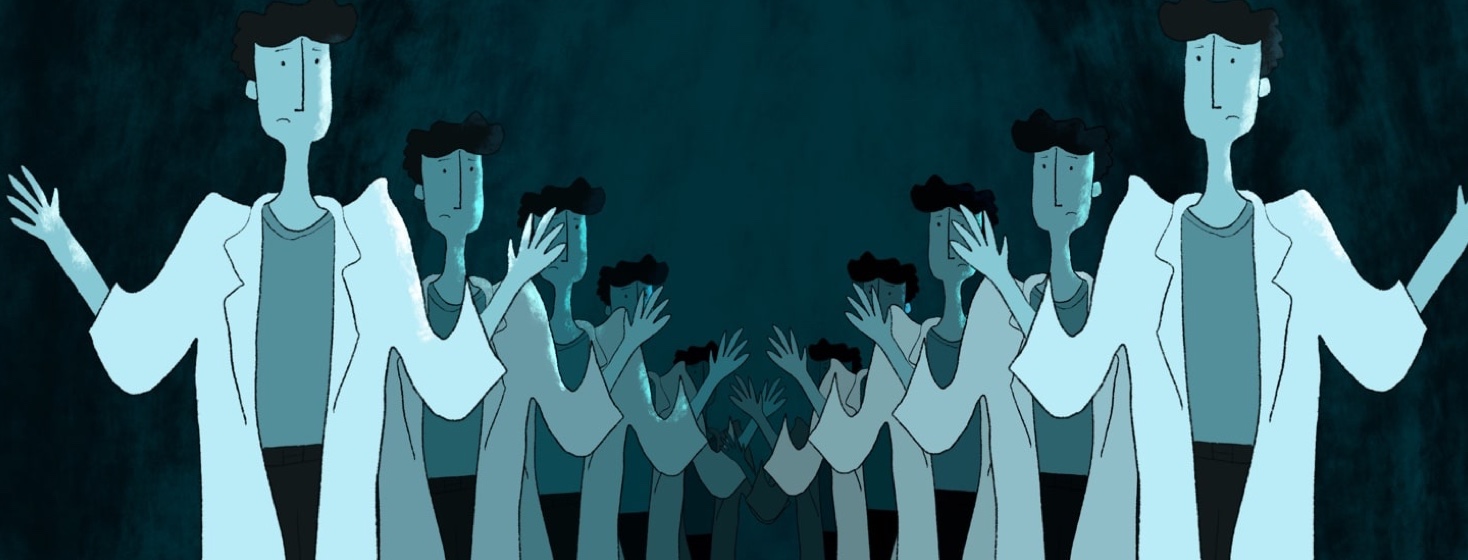The Dizzying Array of Doctors for a Bladder Cancer Patient
Before my first husband had bladder cancer, I had very little direct experience with doctors who specialize in treating cancer (of any kind). I had a vague notion that the word “oncologist” meant that there was a specialist for cancer. And that’s who you would see if you have any kind of cancer. How I wish it were that simple and how harsh an awakening it was.
His was an "interesting" case
This I can say with certainty: you don’t ever want to be medically “interesting.” That was the word used early on by the urologist who first diagnosed my husband’s cancer in 2011. His case was interesting because his presentation was atypical in several ways: his cancer was in a diverticulum off the bladder and the cells were atypical and neither definitively low-or-high-grade. Staging was complicated because the composition of the wall of a diverticulum is different than that of the bladder. After conferring with other urologists, we received the consensus opinion that a partial cystectomy (to remove the diverticulum) would likely be sufficient treatment. This was great news at the time.
A multitude of doctors were needed just to confirm the metastatic diagnosis
But two years later, the cancer came back in the form of a swollen leg to start. No blood in the urine, no pain, just this random symptom. None of his doctors even initially thought of the bladder cancer as a possible cause. In order to make the correct diagnosis, here’s who my husband had to see: (1) urologist (who ordered a CT scan that came back suspicious) (2) an interventional radiologist (to perform a specialized biopsy on the suspicious retroperitoneal mass because it was hard to reach) (3) a pulmonary specialist (who performed a high-tech CT-guided lung biopsy of a suspicious mass that lit up in the PET scan that was done to see if the cancer had spread) and (4) a gastroenterologist to do a colonoscopy to rule out any spread to the colon or other type of cancer.
Cancer felt like a full-time job
That was just to confirm that it was, in fact, metastatic bladder cancer. It had not spread to the lungs or colon but it required those various tests to confirm that was the case. Then we had to figure out if we wanted other opinions. It is so time-consuming and exhausting to go to so many doctors’ appointments. It’s tough to explain to people who haven’t been in the trenches of it just how much cancer can feel like a full-time job.
A treatment plan required more doctors
The hospital’s tumor board met to review my husband’s case and the consensus was that chemotherapy was the only practical option (this was before immunotherapy drugs were an option). So, then we were off to a medical oncologist (and we saw several of them to see if there was any difference in opinions). Meanwhile, that major retroperitoneal tumor, right out of the gate, was causing significant pain and so opioids were prescribed. But it is a real art to find the right balance of pain relief without excessive grogginess. We went to a palliative care doctor for help with this. Soon after starting chemotherapy, my husband developed blood clots and had to begin treatment with blood thinners that required continuous monitoring and visits to a specialty clinic for that.
There were constantly new doctors involved
Bladder cancer patients with metastatic disease often end up making many trips to the emergency room. A multitude of things can necessitate this such as dehydration, excessive constipation from opioids and anti-nausea drugs, suspicion of blood clots, poor pain management and on and on. And of course, every visit results in interactions with doctors who have never before seen the patient and will likely never see him or her again. Sitting in an emergency room once, I remember thinking about my formerly naïve sense of an “oncologist” who just takes care of everything cancer related.
If only it were so simple.

Join the conversation